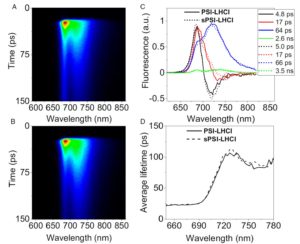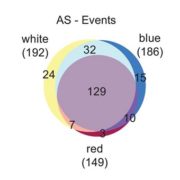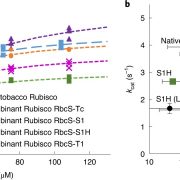Zeaxanthin-dependent nonphotochemical quenching does not occur in photosystem I in Arabidopsis thaliana
 Photosynthesis in plants involves two photosystems acting in series, Photosystem I (PSI) and PSII. Each photosystem is a massive complex consisting of numerous proteins and pigments. The photosystems are efficient at light harvesting but also sensitive to high-light induced photooxidative damage. Photosynthetic organisms have several ways to protect against high-light damage, one of which is a form of non-photochemical quenching (NPQ) that occurs when zeaxanthin is produced from violaxanthin. Zeaxanthin-dependent NPQ was associated solely with PSII, until a recent study of a zeaxanthin over-expressing mutant indicated that it also contributes quenching to PSI. However, here Tian et al. show that in biologically relevant conditions zeaxanthin does not lead to PSI quenching. Proc. Natl. Acad. Sci. USA 10.1073/pnas.1621051114
Photosynthesis in plants involves two photosystems acting in series, Photosystem I (PSI) and PSII. Each photosystem is a massive complex consisting of numerous proteins and pigments. The photosystems are efficient at light harvesting but also sensitive to high-light induced photooxidative damage. Photosynthetic organisms have several ways to protect against high-light damage, one of which is a form of non-photochemical quenching (NPQ) that occurs when zeaxanthin is produced from violaxanthin. Zeaxanthin-dependent NPQ was associated solely with PSII, until a recent study of a zeaxanthin over-expressing mutant indicated that it also contributes quenching to PSI. However, here Tian et al. show that in biologically relevant conditions zeaxanthin does not lead to PSI quenching. Proc. Natl. Acad. Sci. USA 10.1073/pnas.1621051114










Leave a Reply
Want to join the discussion?Feel free to contribute!